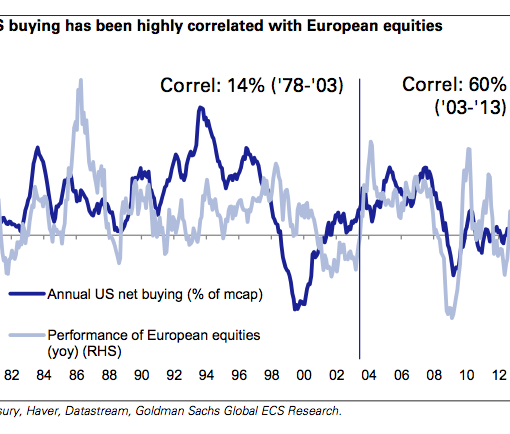 Author: Bill Peattie, Peattie Capital
Author: Bill Peattie, Peattie Capital
Covestor model: Reasonable Price
The markets continue to respond to macro events, such as the developments in Europe, and the slowing growth (still positive, but weak) here in the U.S. Recent data suggest that housing may be doing a bit better, but overall, most economic indicators are trending poorly.
Other notable macro issues are the slowdown in China, and the election. While the Fed hasn’t embarked on QE3, the central bank indicated in their August 1 statement that it is prepared to act “to promote a stronger economic recovery.”
The latest unemployment report had a banner headline of 163,000 new jobs, but the unemployment rate ticked up to 8.3% and other components were also weak, such as the overall employment rate which dropped from 58.6% to 58.4%.
Investors continue to pull money out of traditional U.S. equity funds as data from the ICI reported an outflow of $6.3bn in June, which followed a $9.8 billion outflow in May. The most recent Investors Intelligence poll shows a small drop in the percent of bullish investors from 40.4% to 39.4% and an uptick in bears, from 26.6% to 27.7%.
My belief is that we remain in the same environment that we have been in for several months: an accomodative Fed trying to combat a debt deleveraging cycle and widespread fear.
For now, I think defensive names such as consumer staples, utilities, and pockets of health care will outperform, and Peattie Capital accounts that prefer these kinds of names have been my better performing portfolios.
But at some point the valuation on these names will be stretched too far. That hasn’t happened yet, but according to the Wall Street Journal’s “Ahead of the Tape” column on July 31 Bristol Myers (BMY) was valued at nearly 18x 2012’s free cash flow, almost double Pfizer’s (PFE) 10x multiple.
Overall, defensive names now trade at 15x earnings, their highest multiple in a decade, according to analyst David Rosenberg.
In addition, the U.S. Treasury 10-yr. note now yields roughly 1.5%, down from about 1.90% at year end. No arguments with its performance over the past few years, and if the deflationists are correct, the yield could drop even more, possibly to the 1% range. However, I am advising clients to tread cautiously in the bond markets.
The S&P 500 first hit 1330 on April 8, 1999 and since then has gone virtually nowhere. However, many individual stocks have done very well, and Peattie Capital believes in being very selective and finding good companies trading at attractive valuations. As John Maynard Keynes said “the right method in investment is to put fairly large sums into enterprises one thinks one knows something about.” Said another way, it’s actually a “market of stocks” – not a “stock market.”




